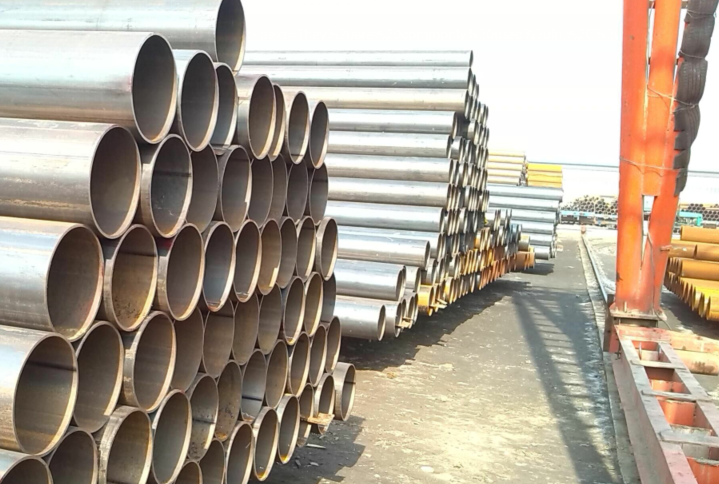
How to Choose the Right ERW Pipe for your Industrial Application?
1. Material
ERW pipes are available in stainless steel, carbon steel, alloy steel and other materials. The material you choose will depend on the specific application and the environment in which it will be used. For example, if the pipe will be used in a corrosive environment, you may want to choose stainless steel pipe because it has the greatest resistance to corrosion. If the budget is insufficient, you can also choose carbon steel pipes. Painting or galvanizing the surface of the pipes can effectively prevent carbon steel from oxidizing and rusting. If it is a particularly harsh working condition, you can choose to thermally spray a layer of carbide on the surface.2. Size
ERW pipes are available in different sizes and dimensions. The size you choose depends on the specific application and the required flow or pressure. It is important to choose the right pipe size to ensure proper flow and avoid any blockage or pressure drop.

3. Wall thickness
ERW pipe comes in different wall thicknesses, which affects its strength and durability. The wall thickness you choose will depend on the specific application and the amount of pressure or stress the pipe will be subjected to. Thicker wall pipes are better suited for high pressure applications.
4. Strength
According to the load and usage conditions of the project, select the appropriate material to meet the strength requirements.
5. Temperature
Choose the appropriate material according to the ambient temperature of use. Some materials have good stability and heat resistance at high temperatures and are suitable for high temperature environments.
6. Pipe end finish
ERW pipe ends are available in different end finishes such as plain end, beveled end, and threaded end. The end finish you choose depends on the specific application and the type of connection required.
7. Standard Certifications
It is important to select ERW pipes that have the appropriate certifications and meet the standards required for your application. For example, if you use pipes in the oil and gas industry, you may need pipes that meet API 5L standards.
8. Cost
Finally, the cost of ERW pipes is also an important factor to consider. The costs of different materials vary greatly. While it’s important to choose pipes that meet the specifications you need, it’s also important to choose pipes that fit your budget.
Go here to learn more about" ERW Pipe Manufacturing Process"


